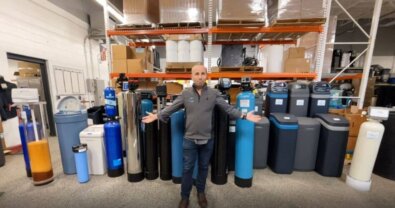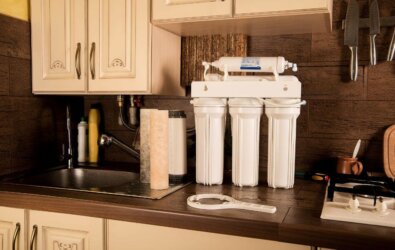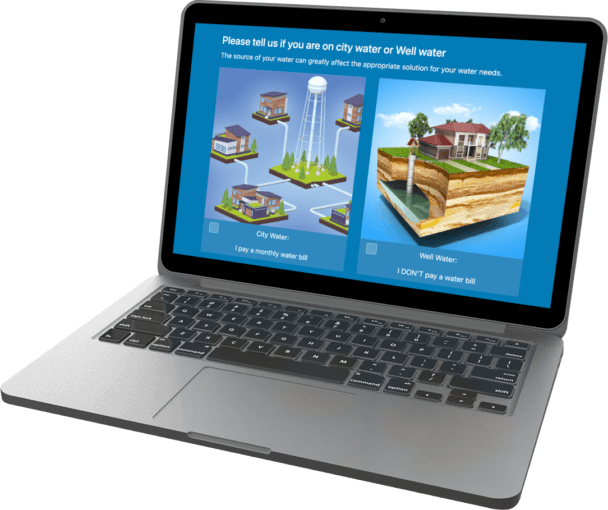How to Maintain a Well: Top 7 Tips to Enjoy Cleaner Water
In this blog, you’ll learn:
• The CDC and EPA strongly recommend annual water testing for homes with private wells.
• Keeping the well’s cap secure keeps out debris as well as insects.
• Animal waste and fertilizer can spoil your well from up to 30 feet away.
• Covering the well cap with dirt, plants or mulch for aesthetic reasons decreases water quality.
• Short cycling is a major well water problem that can cause you to run out of water.
• You must conduct well inspections annually to guarantee the purity of your water.
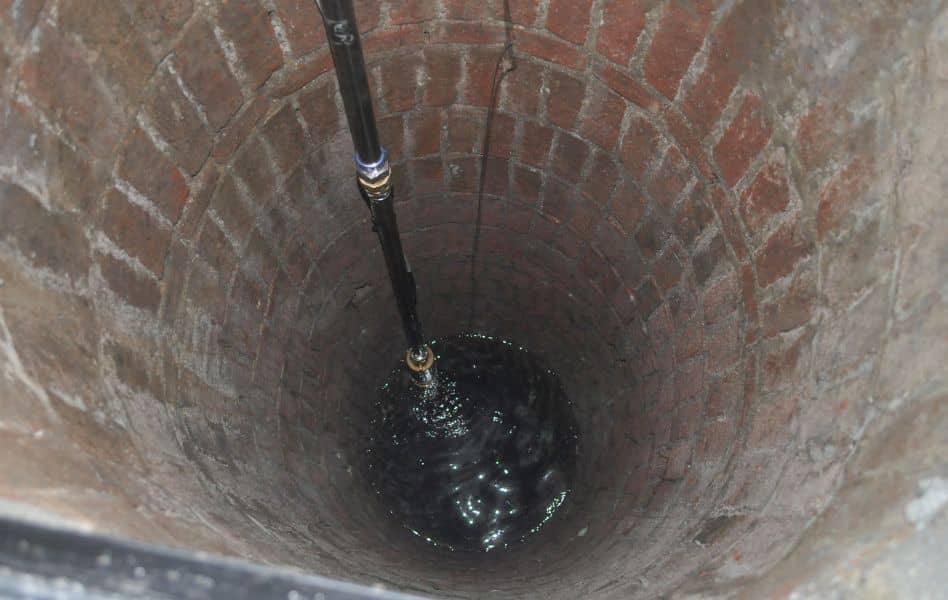
Thankfully, you don’t have to be a plumber or chemist to know how to maintain well water. Here are a few tips regarding how to maintain a well and what to do in the event of contamination.
1. Test Your Water
Especially in Chicagoland suburbs like Barrington Hills, Crystal Lake and Long Grove, testing your water is paramount. From carcinogenic chemicals to animal waste, plenty of contaminants may be present in any well. Public water sources undergo constant monitoring, but your well is your responsibility. If you don’t test it, nobody will.
Conducting a water test based on the Environmental Protection Agency’s (EPA) standards is most effective. Local municipalities look for nitrates, lead and coliform (e coli), though these contaminants are far from the only ones for which the EPA tests much more thoroughly.
The Environmental Working Group (EWG) is even more stringent than the EPA. The independent watchdog organization places stricter limits on all carcinogens in the interest of protecting human health.
Angel Water conducts EPA-certified tests, evaluating results based on the EWG’s suggestions to keep you safe and healthy. Nobody reminds homeowners to test their wells, but we can help you stay vigilant and keep your family from enduring some of the nasty effects of contamination, like cancer or something as immediate as nausea.
2. Pay Attention to Your Water
Apart from testing, pay close attention to your water as you use it. A contaminant isn’t necessarily something we can see, taste or smell, and that’s why completing water tests is important.
However, catching changes in your water supply without conducting a test is occasionally possible, and more obvious symptoms can indicate contamination. Consider the following questions:
- Does it contain floating colored particles? – Anything other than nothing may call for a water filter or chlorine injector.
- What residue does it leave? – Does your skin or hair feel “slimy” after a shower?
- What stains does it leave, if any? – Look at the inside of your dishwasher after a clean, inspect your toilet for brown stains and inspect your dishes for white spots. This is another sign that your family might benefit from a water softener.
- How does it taste? – Salty, soapy or metallic water is no good.
- How does it smell? – Like rotten eggs or a pool? A strong scent can indicate the presence of pollutants.
By testing your water and paying attention to its traits as you use it, you can determine the home water system that’ll offer the most protection against disease. Of course, we can help you with diagnosing which contaminants are present in your water.
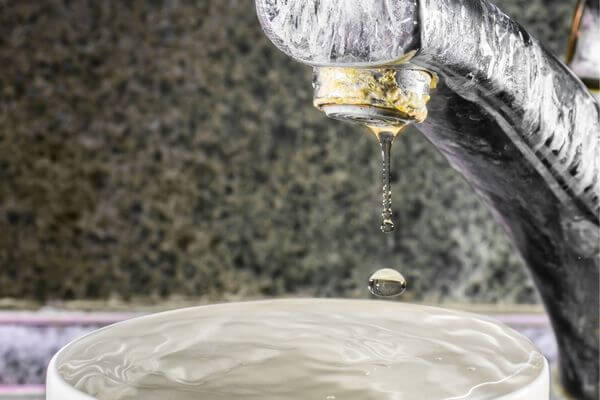
3. Make Sure the Cap Is Secure
Whether your well’s cap is metal or plastic, ensure that it’s secure and nothing has broken or impacted it. As easy as well caps are to overlook, that’s all the more reason to remain vigilant.
As you inspect your well cap, make sure it’s 16 inches above ground. This allows the cap’s vent to breathe.
The plastic or metal casing mustn’t have any holes. Be a squeaky wheel with local well contractors about this because bugs might crawl in there and die, especially during the winter. Not only is this plain nasty, but insects can carry disease! You don’t want dead bugs marinating in your water.
Without regard to the rest of the tank, cap security is paramount. It shouldn’t budge. Keeping your cap secure is a key part of protecting your only water source.
4. Keep Waste Away
Don’t fertilize mulch beds or allow waste of any kind near the casing. In fact, waste must be at least 30 feet from the well cap. It can work its way into the water from that range.
Want to get more helpful water information delivered to your inbox?
Sign up for our free email newsletter!
In the event of coliform or E. coli contamination, you can save your water supply with a PurAClear chlorination system.
Waste must be as far as possible from your well’s cap to make sure carcinogenic or disease-causing materials enter your water supply, many of which don’t appeal to our five senses at all.
5. Let the Well Breathe
Keep the casing free from debris. Don’t cover it in favor of an aesthetically pleasing yard, and remind landscapers to exercise caution around it, especially if they’re about to fire up a lawnmower. As a whole, the well must be sealed well enough to keep water drinkable, but the cap needs some air.
6. Be Wary of Short Cycling
Short cycling is the number one problem many standard wells experience at one point, but what is it exactly?
When you run water and watch the pressure gauge bounce up and down, your well is short cycling. The pressure tank is broken.
This “bouncing” indicated by the pressure gauge interminably switches the well pump on and off. When the pump descends below 40 psi, it turns on. When it exceeds 60 psi, it turns off. Fluctuations between these extremes should be a slow process. Many pumps operate on a 40-60 range, but some regard a 50-70 range.
Though short cycling isn’t a problem for constant-pressure wells, short cycling can be a problem for any standard well. It wastes energy and, more importantly, wears out the pump so that you won’t be able to use your well. If you ignore short cycling and let it fall by the wayside, pretty soon you’ll have no water.
To fix short cycling, contact a well contractor, who can help you reseal the tank.
7. Have Annual Well Inspections
The Illinois Department of Public Health (IDPH) issues permits and inspects new wells, but after that, you’ll need to have a well contractor inspect your well at least once a year to guarantee the purity of your water supply. The same goes for other states.
In addition to well inspections, you’ll also benefit from yearly water tests and septic system evaluations. These regular inspections will allow you to adjust to changes in your water supply by installing home water systems.
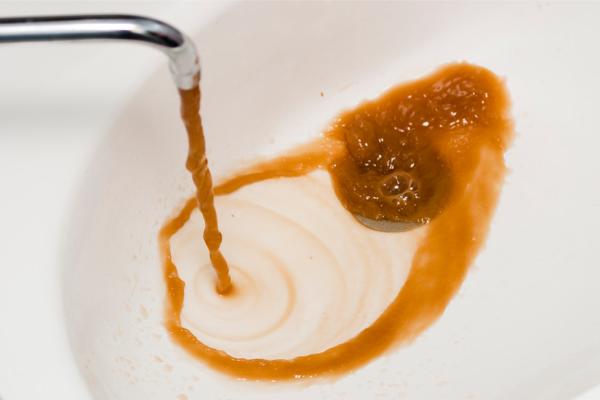
We Can Improve Your Well Water
A lot goes into taking care of a well, and a lot can go wrong. As much of a toll as this process of constant maintenance and monitoring can take, you don’t have to go through it by yourself. Are you concerned about what might have made its way into your well? We hope you recognize how stealthy contaminants can be and how tempting it is to let water problems fall by the wayside.
Angel Water’s licensed plumbers can conduct EPA-certified tests to determine exactly what’s in your water and show you how to protect well water, even if you can’t smell, see or taste anything amiss. Please call 847-382-7800 to talk with a water expert and get started with the testing process, or fill out a form on this site.
Editor’s Note: This blog was originally written in September 2015 and updated in March 2023.
Interested in a Water Softener System for Your Home?
You don’t have to live with a dry, itchy scalp and brittle hair anymore! It would be our pleasure to help you find the right water softener to make your showers enjoyable again.
Please give us a call at (847) 382-7800 or visit our water softener page to learn more.
